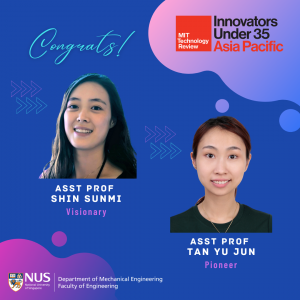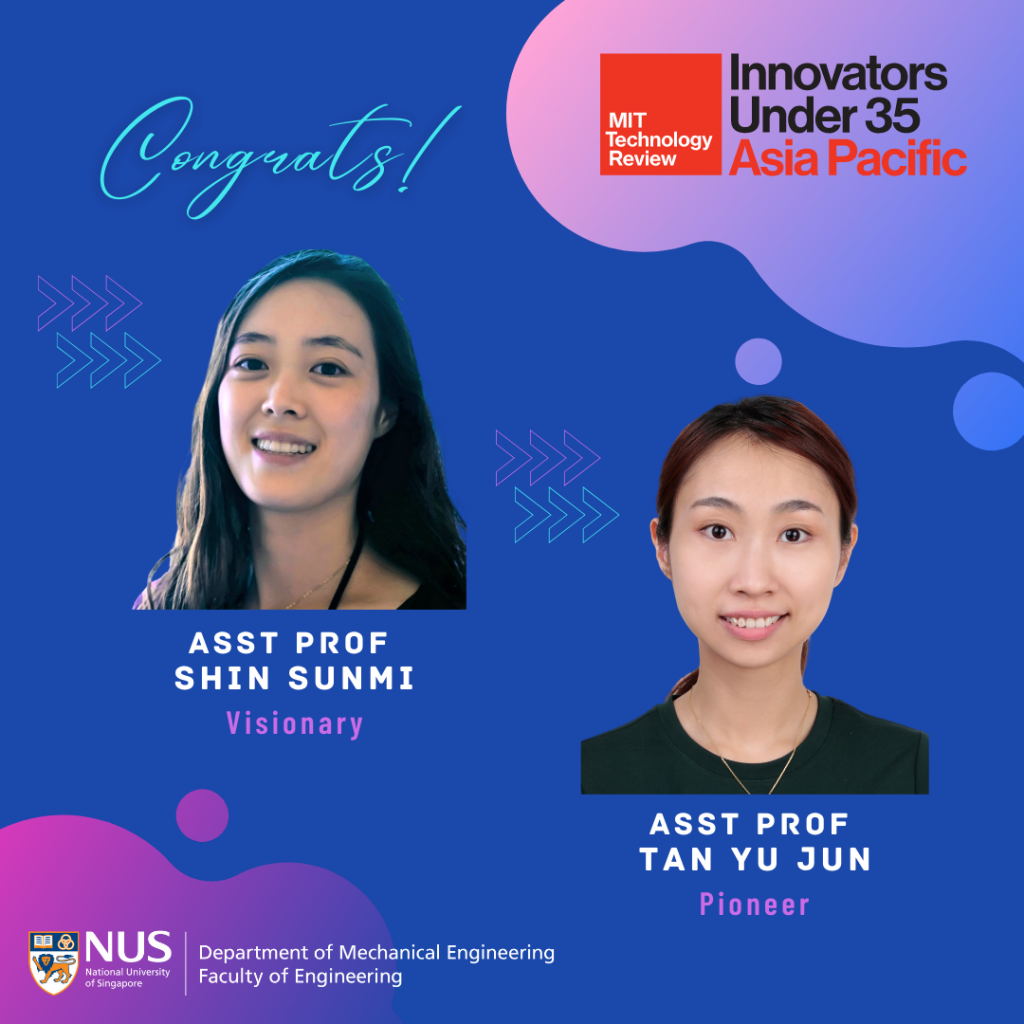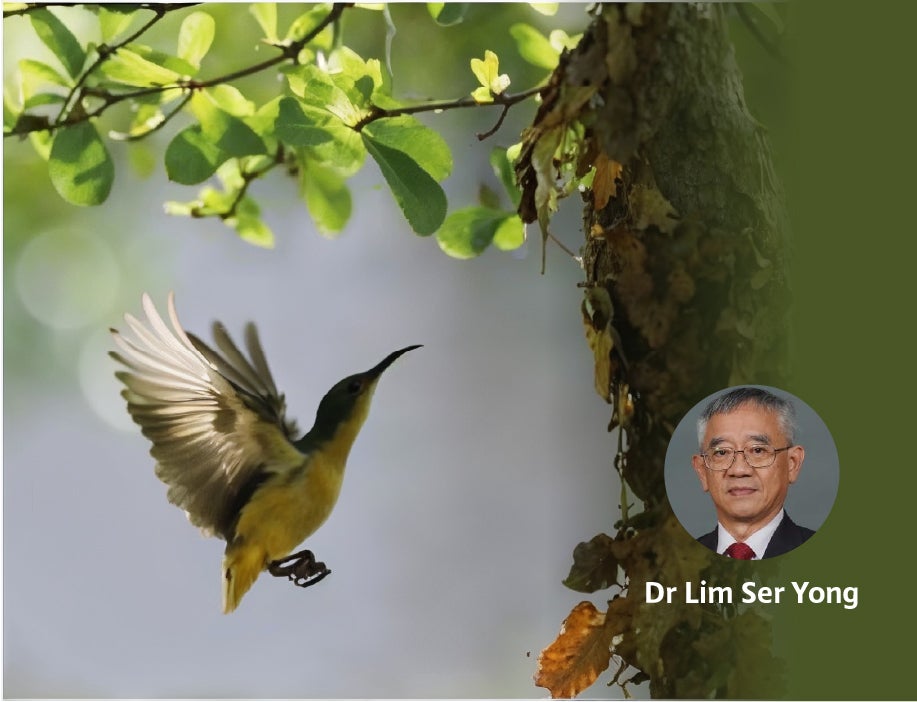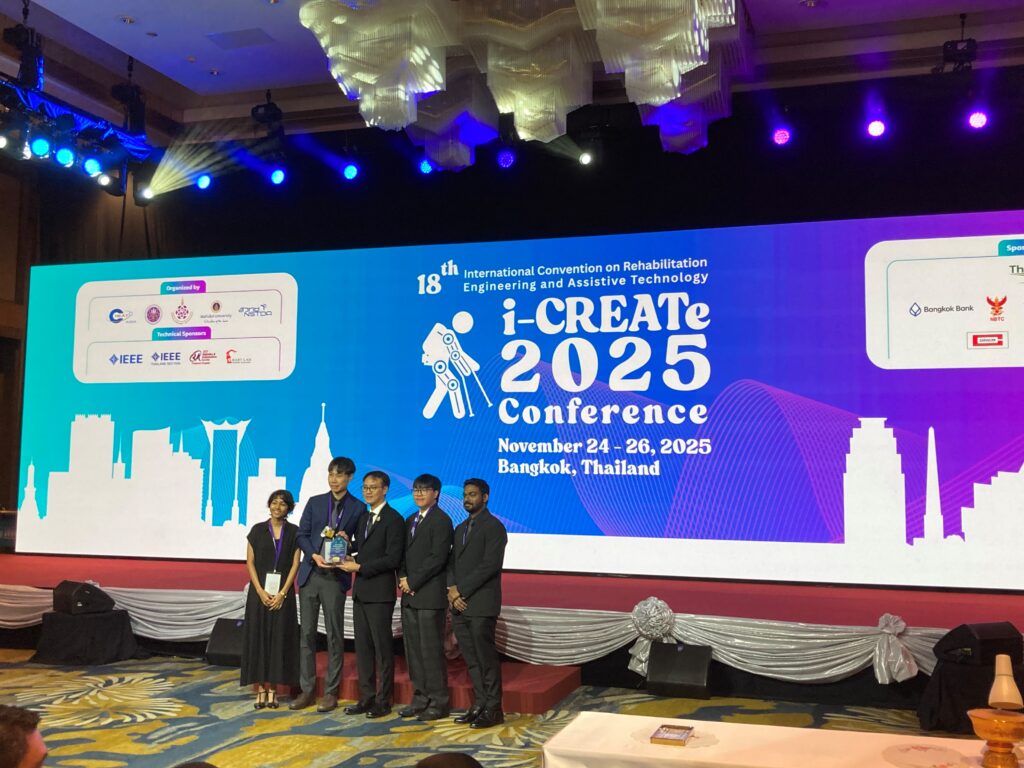
NUS Mechanical Engineering’s Asst Prof Shin Sunmi and Asst Prof Tan Yu Jun have been named in the MIT Technology Review Innovators Under 35 Asia Pacific list. Congrats!
The list was unveiled on 28 October and the honourees were selected by distinguished judges from around the world, based on criteria such as: impact, ingenuity, daring, timeliness, entrepreneurial accomplishments, and communication skills.
Each year, MIT Technology Review recognises brilliant talents for their advancements in diverse technical fields including biotechnology and medicine, computer and electronics hardware, software, internet, artificial intelligence, robotics, telecommunications, nanotechnology and materials, energy, and transportation. These outstanding innovators are commended under five categories: Inventors who build the stuff of the future; Entrepreneurs who hope to turn innovations into disruptive businesses; Visionaries who find powerful new uses of technology; Humanitarians who take unconventional routes to bring about a healthier, cleaner, and more adaptable world; and Pioneers who push the edge of science to create new approaches to tackling technology challenges.
Visionary: Assistant Professor Shin Sunmi
Heat, the most ubiquitous form of energy, is very difficult to control due to its diffusive nature. Asst Prof Shin Sunmi from NUS Mechanical Engineering devised a series of novel setups that demonstrated the capability to enhance and directly measure the coherent thermal emission from nanoscale emitters with exceedingly low emitting power from cryogenic to room temperature. She further strengthened the directionality of radiative emission by fabricating a “heat wire” and controlled the direction of heat flow in a similar fashion to an optical fiber.
Asst Prof Shin said, “The first step to probe the novel heat transfer mode was successful by developing a sensitive thermometry platform. It remains a long journey ahead to utilise it as a dominant heat transfer mode beyond classical heat conduction, radiation and convection, in daily applications. I am excited to see the future where one has a great control of heat and manipulate it to transport, store, and switch in a similar way that one has achieved in optics and electrical engineering.”
Pioneer: Assistant Professor Tan Yu Jun
Asst Prof Tan Yu Jun from NUS Mechanical Engineering developed a new and unique fluoropolymer that has very high dielectric permittivity with good elastic properties – this is a breakthrough in stretchable light-emitting capacitors. This highly transparent material demonstrated the highest light output per unit electric field applied when used as the dielectric material in the light-emitting capacitor device. It is also the first of its type to be used in light-emitting capacitors and shows great promise to develop new optoelectronic applications in soft machines.
Asst Prof Tan further discovered that the material was able to self-heal autonomously from mechanical damage, and revealed the mechanism of healing action. She also demonstrated possible applications of the material in emerging soft robotics applications.
Asst Prof Tan was also involved in developing the first underwater self-healable conductive ionogel. Using this material, her team made touch sensors, pressure sensors and strain sensors, as well as a soft and self-healing ion printed circuit board through 3D printing.
“I am thrilled to be named in the MIT Review Innovators Under 35 Asia Pacific 2021, and I am humbled to join past recipients of TR35 whom I have long respected. Special thanks to those who had nominated me and supported my nomination. It has been very exciting working in the field of self-healing and stretchable electronics in NUS. I have the opportunity to collaborate with smart and productive people here, and I am grateful for the prolific interactions,” said Asst Prof Tan.





